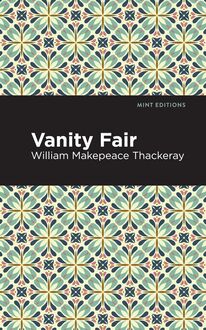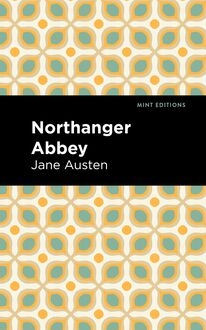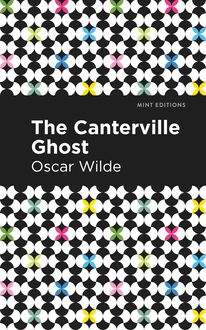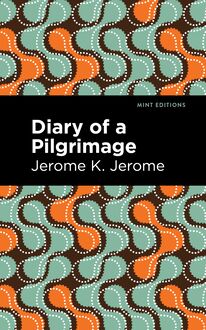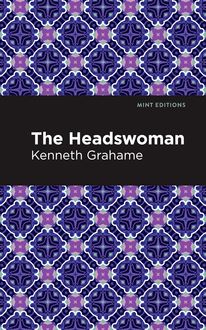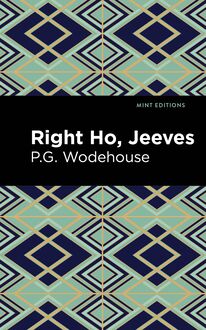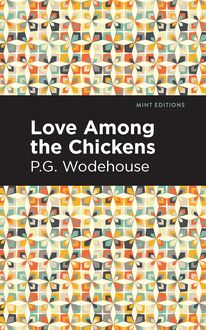-
 Univers
Univers
-
 Ebooks
Ebooks
-
 Livres audio
Livres audio
-
 Presse
Presse
-
 Podcasts
Podcasts
-
 BD
BD
-
 Documents
Documents
-
- Cours
- Révisions
- Ressources pédagogiques
- Sciences de l’éducation
- Manuels scolaires
- Langues
- Travaux de classe
- Annales de BEP
- Etudes supérieures
- Maternelle et primaire
- Fiches de lecture
- Orientation scolaire
- Méthodologie
- Corrigés de devoir
- Annales d’examens et concours
- Annales du bac
- Annales du brevet
- Rapports de stage
La lecture à portée de main
Vous pourrez modifier la taille du texte de cet ouvrage
Découvre YouScribe en t'inscrivant gratuitement
Je m'inscrisDécouvre YouScribe en t'inscrivant gratuitement
Je m'inscrisEn savoir plus
Vous pourrez modifier la taille du texte de cet ouvrage
En savoir plus

Description
The Crock of Gold (1912), one of three original novels by James Stephens, is a work only a master of fiction and folklore could imagine. Taking up the major philosophical and psychological concerns of the early-twentieth century—over a decade before works by T.S. Eliot, James Joyce, and Virginia Woolf, among others, would cement literary Modernism’s place in history—Stephens’ novel is a groundbreaking and important work.
The text centers on the Philosopher and his wife, the Thin Woman, who undergo a series of journeys and harrowing trials. Faced with danger both human and divine, the two characters are forced to weather the winds of change in order to change themselves. Divided into six books, The Crock of Gold—no doubt inspired by the Irish oral tradition of storytelling—follows the Philosopher’s quest to save the most beautiful woman in the world; his encounter with the gods who have captured her; his return home and arrest for murder (he has been framed by leprechauns incensed at the loss of their crock of gold); and finally, the Thin Woman’s quest to find the fabled Three Infinites.
James Stephens’ The Crock of Gold is perhaps unparalleled in its ability to weave together ancient narrative techniques, mythological sources, and such dominant themes of its day as gender equality and humanity’s quest for self-understanding beyond the traditional boundaries of faith and religion. It is also a darkly comic novel, full of ironic political commentary and suspiciously human conversations situated within the animal world. Most popular of Stephens’ works, The Crock of Gold conceals in its humorous, irreverent outlook a deeply serious, ultimately reverent love for the human soul—unsurprising for an author whose life was marked with difficulty from the very beginning.
With a beautifully designed cover and professionally typeset manuscript, this new edition of James Stephens’ The Crock of Gold is a classic of Irish literature reimagined for modern readers.
Sujets
Informations
| Publié par | Mint Editions |
| Date de parution | 01 décembre 2020 |
| Nombre de lectures | 0 |
| EAN13 | 9781513267128 |
| Langue | English |
| Poids de l'ouvrage | 1 Mo |
Informations légales : prix de location à la page 0,0450€. Cette information est donnée uniquement à titre indicatif conformément à la législation en vigueur.
Extrait
The Crock of Gold
James Stephens
The Crock of Gold was first published in 1912.
This edition published by Mint Editions 2020.
ISBN 9781513266688 | E-ISBN 9781513267128
Published by Mint Editions®
minteditionbooks.com
Publishing Director: Jennifer Newens
Design & Production: Rachel Lopez Metzger
Typesetting: Westchester Publishing Services
C ONTENTS B OOK 1. T HE C OMING OF P AN B OOK 2. T HE P HILOSOPHER ’ S J OURNEY B OOK 3. T HE T WO G ODS B OOK 4. T HE P HILOSOPHER ’ S R ETURN B OOK 5. T HE P OLICEMEN B OOK 6. T HE T HIN W OMAN ’ S J OURNEY AND THE H APPY M ARCH
BOOK 1
THE COMING OF PAN
Chapter 1
I n the centre of the pine wood called Coilla Doraca there lived not long ago two Philosophers. They were wiser than anything else in the world except the Salmon who lies in the pool of Glyn Cagny into which the nuts of knowledge fall from the hazel bush on its bank. He, of course, is the most profound of living creatures, but the two Philosophers are next to him in wisdom. Their faces looked as though they were made of parchment, there was ink under their nails, and every difficulty that was submitted to them, even by women, they were able to instantly resolve. The Grey Woman of Dun Gortin and the Thin Woman of Inis Magrath asked them the three questions which nobody had ever been able to answer, and they were able to answer them. That was how they obtained the enmity of these two women which is more valuable than the friendship of angels. The Grey Woman and the Thin Woman were so incensed at being answered that they married the two Philosophers in order to be able to pinch them in bed, but the skins of the Philosophers were so thick that they did not know they were being pinched. They repaid the fury of the women with such tender affection that these vicious creatures almost expired of chagrin, and once, in a very ecstacy of exasperation, after having been kissed by their husbands, they uttered the fourteen hundred maledictions which comprised their wisdom, and these were learned by the Philosophers who thus became even wiser than before.
In due process of time two children were born of these marriages. They were born on the same day and in the same hour, and they were only different in this, that one of them was a boy and the other one was a girl. Nobody was able to tell how this had happened, and, for the first time in their lives, the Philosophers were forced to admire an event which they had been unable to prognosticate; but having proved by many different methods that the children were really children, that what must be must be, that a fact cannot be controverted, and that what has happened once may happen twice, they described the occurrence as extraordinary but not unnatural, and submitted peacefully to a Providence even wiser than they were.
The Philosopher who had the boy was very pleased because, he said, there were too many women in the world, and the Philosopher who had the girl was very pleased also because, he said, you cannot have too much of a good thing: the Grey Woman and the Thin Woman, however, were not in the least softened by maternity—they said that they had not bargained for it, that the children were gotten under false presences, that they were respectable married women, and that, as a protest against their wrongs, they would not cook any more food for the Philosophers. This was pleasant news for their husbands, who disliked the women’s cooking very much, but they did not say so, for the women would certainly have insisted on their rights to cook had they imagined their husbands disliked the results: therefore, the Philosophers besought their wives every day to cook one of their lovely dinners again, and this the women always refused to do.
They all lived together in a small house in the very centre of a dark pine wood. Into this place the sun never shone because the shade was too deep, and no wind ever came there either, because the boughs were too thick, so that it was the most solitary and quiet place in the world, and the Philosophers were able to hear each other thinking all day long, or making speeches to each other, and these were the pleasantest sounds they knew of. To them there were only two kinds of sounds anywhere—these were conversation and noise: they liked the first very much indeed, but they spoke of the second with stern disapproval, and, even when it was made by a bird, a breeze, or a shower of rain, they grew angry and demanded that it should be abolished. Their wives seldom spoke at all and yet they were never silent: they communicated with each other by a kind of physical telegraphy which they had learned among the Shee—they cracked their finger-joints quickly or slowly and so were able to communicate with each other over immense distances, for by dint of long practice they could make great explosive sounds which were nearly like thunder, and gentler sounds like the tapping of grey ashes on a hearthstone. The Thin Woman hated her own child, but she loved the Grey Woman’s baby, and the Grey Woman loved the Thin Woman’s infant but could not abide her own. A compromise may put an end to the most perplexing of situations, and, consequently, the two women swapped children, and at once became the most tender and amiable mothers imaginable, and the families were able to live together in a more perfect amity than could be found anywhere else.
The children grew in grace and comeliness. At first the little boy was short and fat and the little girl was long and thin, then the little girl became round and chubby while the little boy grew lanky and wiry. This was because the little girl used to sit very quiet and be good and the little boy used not.
They lived for many years in the deep seclusion of the pine wood wherein a perpetual twilight reigned, and here they were wont to play their childish games, flitting among the shadowy trees like little quick shadows. At times their mothers, the Grey Woman and the Thin Woman, played with them, but this was seldom, and sometimes their fathers, the two Philosophers, came out and looked at them through spectacles which were very round and very glassy, and had immense circles of horn all round the edges. They had, however, other playmates with whom they could romp all day long. There were hundreds of rabbits running about in the brushwood; they were full of fun and were very fond of playing with the children. There were squirrels who joined cheerfully in their games, and some goats, having one day strayed in from the big world, were made so welcome that they always came again whenever they got the chance. There were birds also, crows and blackbirds and willy-wagtails, who were well acquainted with the youngsters, and visited them as frequently as their busy lives permitted.
At a short distance from their home there was a clearing in the wood about ten feet square; through this clearing, as through a funnel, the sun for a few hours in the summer time blazed down. It was the boy who first discovered the strange radiant shaft in the wood. One day he had been sent out to collect pine cones for the fire. As these were gathered daily the supply immediately near the house was scanty, therefore he had, while searching for more, wandered further from his home than usual. The first sight of the extraordinary blaze astonished him. He had never seen anything like it before, and the steady, unwinking glare aroused his fear and curiosity equally. Curiosity will conquer fear even more than bravery will; indeed, it has led many people into dangers which mere physical courage would shudder away from, for hunger and love and curiosity are the great impelling forces of life. When the little boy found that the light did not move he drew closer to it, and at last, emboldened by curiosity, he stepped right into it and found that it was not a thing at all. The instant that he stepped into the light he found it was hot, and this so frightened him that he jumped out of it again and ran behind a tree. Then he jumped into it for a moment and out of it again, and for nearly half an hour he played a splendid game of tip and tig with the sunlight. At last he grew quite bold and stood in it and found that it did not burn him at all, but he did not like to remain in it, fearing that he might be cooked. When he went home with the pine cones he said nothing to the Grey Woman of Dun Gortin or to the Thin Woman of Inis Magrath or to the two Philosophers, but he told the little girl all about it when they went to bed, and every day afterwards they used to go and play with the sunlight, and the rabbits and the squirrels would follow them there and join in their games with twice the interest they had shown before.
Chapter 2
T o the lonely house in the pine wood people sometimes came for advice on subjects too recondite for even those extremes of elucidation, the parish priest and the tavern. These people were always well received, and their perplexities were attended to instantly, for the Philosophers liked being wise and they were not ashamed to put their learning to the proof, nor were they, as so many wise people are, fearful lest they should become poor or less respected by giving away their knowledge. These were favourite maxims with them:
You must be fit to give before you can be fit to receive.
Knowledge becomes lumber in a week, therefore, get rid of it.
The box must be emptied before it can be refilled.
Refilling is progress.
A sword, a spade, and a thought should never be allowed to rust.
The Grey Woman and the Thin Woman, however, held opinions quite contrary to these, and their maxims also were different:
A secret is a weapon and a friend.
Man is God’s secret, Power is man’s secret, Sex is woman’s secret.
By having much you are fitted to have more.
There is always room in the box.
The art of packing is the last lecture of wisdom.
The scalp of your enemy is progress.
Holding these opposed views it
-
 Univers
Univers
-
 Ebooks
Ebooks
-
 Livres audio
Livres audio
-
 Presse
Presse
-
 Podcasts
Podcasts
-
 BD
BD
-
 Documents
Documents
-
Jeunesse
-
Littérature
-
Ressources professionnelles
-
Santé et bien-être
-
Savoirs
-
Education
-
Loisirs et hobbies
-
Art, musique et cinéma
-
Actualité et débat de société
-
Jeunesse
-
Littérature
-
Ressources professionnelles
-
Santé et bien-être
-
Savoirs
-
Education
-
Loisirs et hobbies
-
Art, musique et cinéma
-
Actualité et débat de société
-
Actualités
-
Lifestyle
-
Presse jeunesse
-
Presse professionnelle
-
Pratique
-
Presse sportive
-
Presse internationale
-
Culture & Médias
-
Action et Aventures
-
Science-fiction et Fantasy
-
Société
-
Jeunesse
-
Littérature
-
Ressources professionnelles
-
Santé et bien-être
-
Savoirs
-
Education
-
Loisirs et hobbies
-
Art, musique et cinéma
-
Actualité et débat de société
- Cours
- Révisions
- Ressources pédagogiques
- Sciences de l’éducation
- Manuels scolaires
- Langues
- Travaux de classe
- Annales de BEP
- Etudes supérieures
- Maternelle et primaire
- Fiches de lecture
- Orientation scolaire
- Méthodologie
- Corrigés de devoir
- Annales d’examens et concours
- Annales du bac
- Annales du brevet
- Rapports de stage

